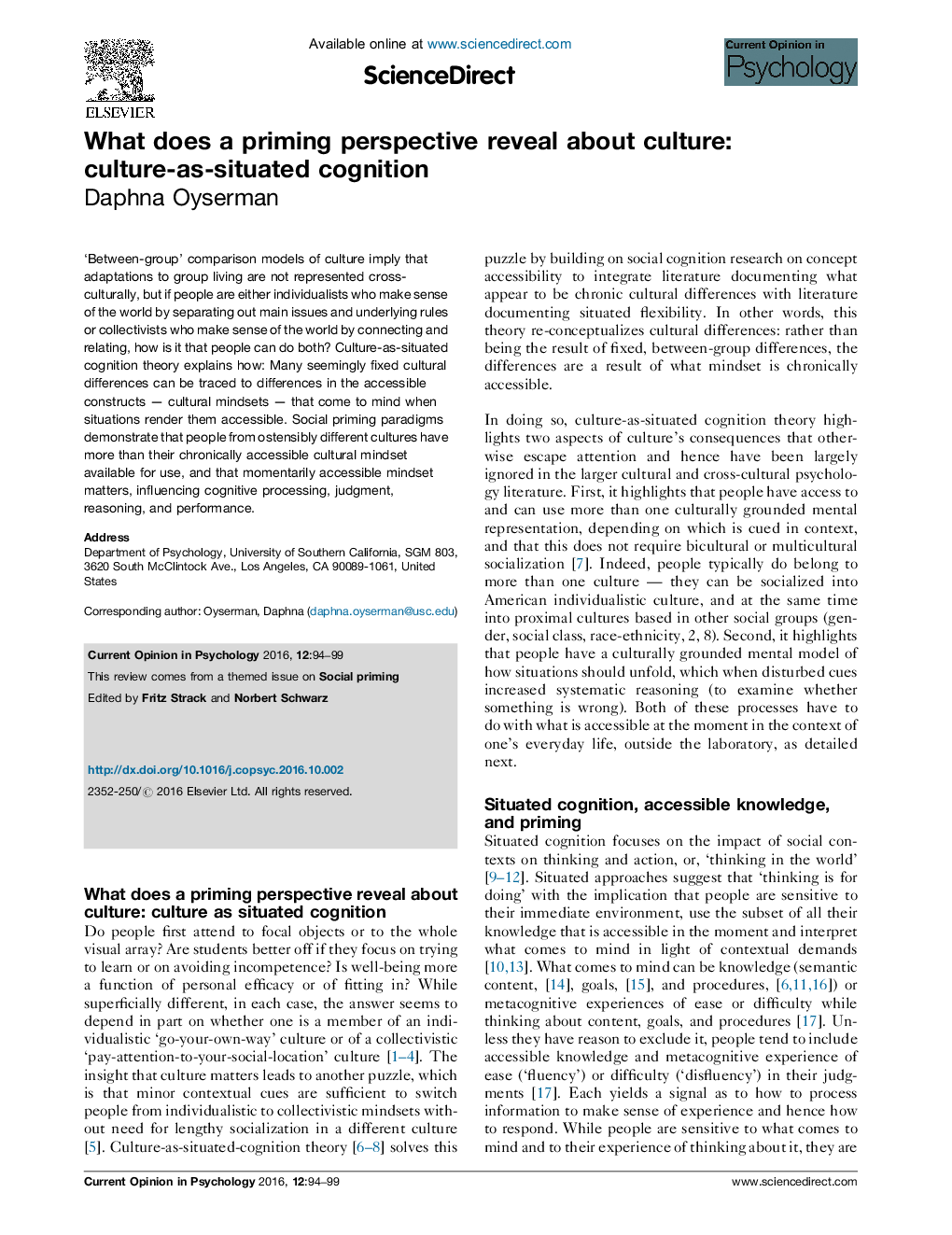| Article ID | Journal | Published Year | Pages | File Type |
|---|---|---|---|---|
| 7240069 | Current Opinion in Psychology | 2016 | 6 Pages |
Abstract
'Between-group' comparison models of culture imply that adaptations to group living are not represented cross-culturally, but if people are either individualists who make sense of the world by separating out main issues and underlying rules or collectivists who make sense of the world by connecting and relating, how is it that people can do both? Culture-as-situated cognition theory explains how: Many seemingly fixed cultural differences can be traced to differences in the accessible constructs - cultural mindsets - that come to mind when situations render them accessible. Social priming paradigms demonstrate that people from ostensibly different cultures have more than their chronically accessible cultural mindset available for use, and that momentarily accessible mindset matters, influencing cognitive processing, judgment, reasoning, and performance.
Related Topics
Social Sciences and Humanities
Psychology
Applied Psychology
Authors
Daphna Oyserman,
